Adjustable-Rate Mortgages | Compare ARM Loan Rates
The Ultimate Guide to Adjustable-Rate Mortgages
Homeownership begins a new chapter in your life. Before moving into your dream home, you must choose the right mortgage for your finances. One option is an adjustable-rate mortgage, which varies in interest over time.

Adjustable-Rate Interest Rates
Lock in a lower interest rate for the next 7 years with an adjustable-rate-mortgage (ARM).

Key takeaways
- Adjustable-rate mortgages come with an interest rate that changes at predetermined times, such as once a year or every 6 months. The rates are based on an index and the margin and can go up or down depending on economic factors.
- ARMs come with rate caps that limit how much the mortgage rate and/or payments can rise per year or over the lifetime of the loan
- ARMs typically have a low introductory rate, which translates to more affordable monthly mortgage payments initially.
- ARMs are generally better for borrowers who plan to stay in the home for a shorter time, or who expect to refinance before the introductory rate period ends.
Adjustable Rate Mortgage Definition
An adjustable-rate mortgage (ARM), also recognized as a variable-rate mortgage or a rate that adjusts, is a mortgage option where the interest rate on an ARM can increase or decrease based on market conditions. Initially, ARMs often offer a lower interest rate than their counterpart, making them an attractive mortgage type for those wanting to get a mortgage with the most favorable terms from the outset.
However, this initial interest rate is fixed only for a certain period. Once this fixed-rate period ends, the interest rate may fluctuate, and your Annual Percentage Rate (APR) may increase. This variability means that planning long-term budgets can become challenging if you’re unprepared for potential payment amount changes.
Adjustable vs. Fixed-Rate Mortgages
When exploring mortgage options, you’ll encounter both fixed-rate and adjustable-rate mortgages. Each mortgage type has its characteristics: during the initial period, an ARM may offer lower interest rates, resulting in a more affordable initial monthly payment. Yet, as the fixed-rate period concludes, the rate on an ARM mortgage may adjust in response to the market, potentially impacting your payments.
In contrast, a fixed-rate mortgage provides consistency with a constant interest rate throughout the loan’s term, ensuring stable monthly mortgage payments. This predictability can offer peace of mind for those who prefer to avoid the uncertainty associated with rate fluctuations.

Payment Example: ARM vs. Fixed-Rate Mortgage Option
Even though the first payment for an ARM may seem better than a fixed-rate payment, you should also know the highest amount you might have to pay. In this example, we show what could happen in the worst situation. We assume the first change in rate could be up to 5 percent, the next changes could be 1 percent each time, and the highest it could ever go is 5 percent: Whereas a fixed rate comes with a fixed interest rate for the entirety of the loan. As such, your payments remain the same.
Get a lower mortgage rate than a 30-year-fixed.
Lock in a lower interest rate for the next 7 years with an adjustable-rate-mortgage (ARM).
FAQ
Find Out Answers Here
Conventional mortgages hold the title as the most popular type, with lenders originating more than 4.1 million conventional loans in 2022. This contrasts with over 1.3 million nonconventional mortgage originations, including FHA, VA, and USDA mortgages, highlighting the diverse needs of homebuyers.
VA loans often feature the lowest interest rates, benefiting from the support of the Department of Veterans Affairs. However, FHA mortgages also offer competitive rates, particularly for those with less-than-perfect credit histories. Ultimately, securing the best rates depends on various factors, including credit score, debt-to-income ratio, property type (single-family home, condo, or multi-family and down payment size.
FHA mortgages are generally considered the easiest to qualify for, designed to assist those with lower incomes or less-than-ideal FICO scores. If you’re finding it challenging to qualify for a conventional mortgage, an FHA loan could be a viable path to homeownership.
Many first-time homebuyer programs allow buyers who haven’t owned a property in the past three years. This includes divorced spouses who have only jointly owned a home with an ex-spouse.
Choosing the best mortgage lender will depend on the home loan options you’re applying for, how much you want to borrow, the term of the loan, mortgage interest rate, and many other factors. Review our guides for best mortgage lenders, top FHA lenders, and best VA lenders.
Choosing the right mortgage is a significant decision that will impact your finances for years to come. Whether you’re considering a loan backed by the U.S. Department of Veterans Affairs to take advantage of lower mortgage rates without the need for upfront mortgage insurance or exploring a USDA mortgage to purchase a home in a rural area, tools like a mortgage calculator can be invaluable. They help you understand the total loan cost, including the life of your loan and potential higher monthly payments. Remember, making a down payment can reduce your monthly obligations and increase the equity in your home from the start. Ultimately, the best path forward involves careful consideration of your ability to qualify for a mortgage, the type of loan that suits your financial situation, and how long you plan to stay in your home, ensuring you select the mortgage that aligns with your long-term goals.


